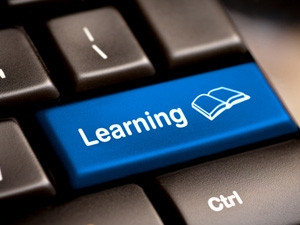
Some of Gauteng's private schools have adopted a bring your own device (BYOD) policy in an approach aimed at enhancing e-learning among students.
Ruimsig Academy, in Roodepoort, west of Johannesburg, opened in 2010 and its pupils are required to bring laptops to follow a curriculum using online and software-based resources in the classroom. The school has 126 learners from grade R to grade seven, and principal Peter McLeish says technology use was a central teaching and learning component when the school opened.
According to McLeish, mathematics, science and English classes have a technology focus for pupils in grades R to three, while the rest of the learners access most of their textbooks and worksheets online.
"The costs of using online resources are similar to what we would have paid for a paper-based curriculum. We pay around R60 000 per year to use McGraw Hill resources and it would have cost the same to buy and import physical textbooks, because they aren't published locally," says McLeish.
Meanwhile, Dainfern College introduced a "bring your own tablet" initiative last year, aiming to "develop 21st Century pupils who feature as educated, robust digital citizens". According to the school, tablets assist pupils to manage schedules using digital calendar apps for timetables and assignment management.
A similar approach is being adopted at a few of the Crawford College schools, according to marketing manager Christelle Wolmarans, who notes the preparatory school in Fourways encourages tablet device proficiency among teachers and learners.
Peter Henning, IT manager at St John's College, says although Apple iPad use has increased in grades 0 to 3 over the past few years, the school is sceptical about "rushing into a technology fad", without a strong enough curriculum to support it. "We wouldn't be moving too rapidly towards a programme where everyone has to bring a laptop or tablet," he adds.
Effective implementation
ICT veteran Adrian Schofield says learning is potentially enhanced by the array of digital information available, while schools would need effective measures to ensure pupils are not easily distracted on the Web.
"Such programmes need to be properly managed by teachers who understand how technology supports the learning experience and also how to direct youngsters to follow tasks in order to get the best out of the digital experience," adds Schofield.
Although the primarily digital nature of teaching and learning has decreased the amount of paper administration for educators, says McLeish, a few subjects still use pen-and-paper, while the teacher's role is still central to the learning process. "The technology is there, but it's to enhance the lesson, not to take over the lesson."
Schofield notes SA has a long way to go to ensure ubiquitous connectivity, while the threat of interrupted power supplies could potentially be problematic.
Share